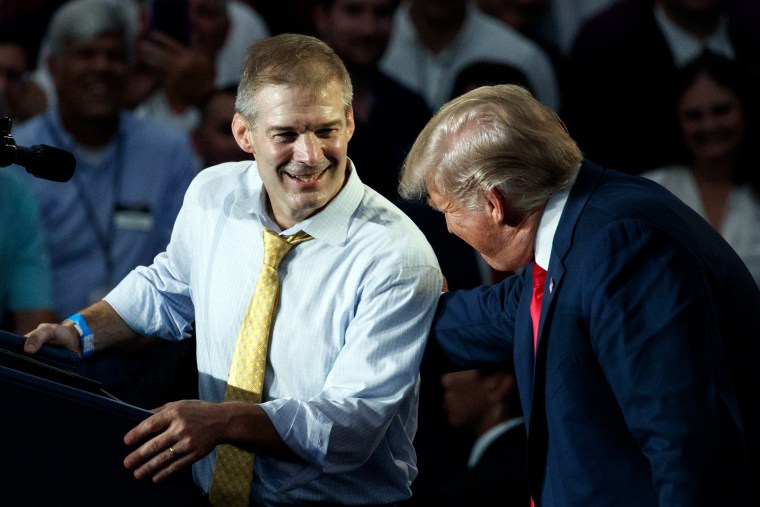It was about a week ago when Donald Trump thought it’d be a good idea to weigh in on the Republicans’ race for House speaker. The former president seemed to understand that there was a competitive contest underway, and he seemed eager to tip the scales.
It led him to publish this 164-word missive to his social media platform, which went into considerable detail into Rep. Jim Jordan’s wrestling career, before eventually endorsing the Ohio Republican’s leadership bid.
“He is STRONG on Crime, Borders, our Military/Vets, & 2nd Amendment. Jim, his wife, Polly, & family are outstanding — He will be a GREAT Speaker of the House, & has my Complete & Total Endorsement!”
Five days later, GOP members held a closed-door, secret-ballot election to choose the party’s official nominee for speaker. The Trump-backed House Judiciary Committee chairman lost, finishing with roughly 45% of the vote from the Republican conference.
Or put another way, House Republicans heard Trump, knew exactly what he expected them to do, and most of them decided to go in a different direction.
There was some commentary yesterday about the nature of the process: GOP lawmakers could vote as they pleased because they knew no one, including Trump, would know precisely for whom they voted. Even if the former president reached out directly and asked members whether they followed his advice, he’d never know the difference.
And while there might be some truth to that, there’s also a larger context to keep in mind.
Trump intervened in the fight over government spending and directed House Republicans to shut down the government. Most GOP members ignored the advice and kept the government’s lights on.
Trump intervened in the fight over debt ceiling negotiations, and soon after, Republicans ignored his stated wishes.
Trump has told Senate Republicans to replace Mitch McConnell as the Senate minority leader, and they haven’t. Trump told the GOP majority in the Texas House not to impeach state Attorney General Ken Paxton, and they did.
In the last Congress, Trump told Republicans to reject a bipartisan infrastructure and a proposed overhaul of the Electoral Count Act. That reflected the wishes of many GOP lawmakers, but enough Republicans ignored the former president on these measures, too, and they passed into law.
The point is not that Trump is irrelevant in Republican politics. Obviously, he’s the party’s most dominant voice and the party’s leading presidential candidate by a wide margin. But there’s a myth in some circles that the former president can simply bark orders and watch GOP officials obediently follow his instructions.
In several notable instances, that’s just not the case.

